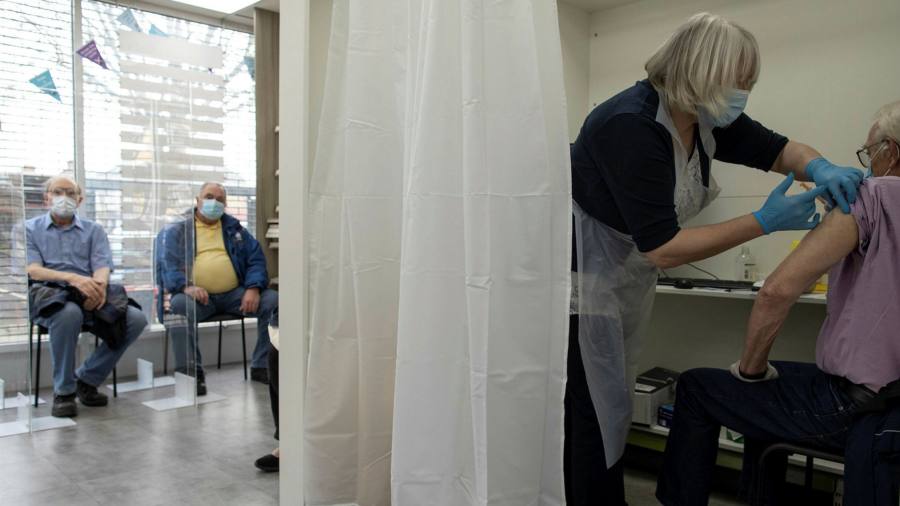[ad_1]
The cost to companies of “final salary†style pension schemes could fall by as much as £60bn because of the impact of Covid-19, according to new analysis.
Modelling, which quantifies the financial impact of the pandemic on company retirement schemes for the first time, suggests that pension liabilities for individual companies could fall by tens, or even hundreds of millions of pounds, as life expectancy estimates are revised down, shrinking funding holes.
In the UK, about 5,300 businesses fund defined-benefit pension plans, which promise to pay secure pensions for life to about 11m members and surviving spouses.
In recent years, improvements in life expectancy have added to the costs of meeting these pension pledges, which can run decades into the future.
But in-depth analysis by XPS, an actuarial firm, suggested that the impact of the pandemic on the NHS and the economy would shave about seven months from the projected life expectancy of a typical 65-year-old.
“This will reduce the cost of pension promises by 1.5 per cent to 3.5 per cent, depending on the membership of a scheme,†said Steve Leake, principal and actuary with XPS, which advises more than 1,100 pension schemes and their sponsoring employer.
“Across all UK DB pension schemes, this would mean a £25bn to £60bn fall in the cost of pensions measured on an accounting basis.â€
XPS analysis factored in the immediate death toll from Covid-19, with more than 110,000 people in the UK dying of the virus since the start of the pandemic.
But the model also took into account the long-term toll of the pandemic on the NHS, which has seen its non Covid-19 patient backlog increase to more than 4m, and the economy, with the unemployment rate forecast to climb to 7.2 per cent this year.
“Whilst there may be some improvement in future mortality rates, following the significant breakthroughs in vaccine development research, this could be potentially dwarfed by other issues that the UK healthcare system is facing,†said XPS in its analysis.
It pointed to record NHS waiting lists and the impact on potential therapies.
“Research into cures and treatments for key causes of death, such as dementia, have been significantly reduced, and dementia patients themselves taking a significant toll as a result of the lockdowns.â€
A weaker economy would also affect pension liabilities, said the analysis, with rising joblessness having a “strong correlation to life expectancyâ€.
The Institute and Faculty of Actuaries, a trade body, said as well as loss of life in the short term, it expected the pandemic to have a “significant†negative impact on health and life expectancy in the longer term.
“Covid-19 is likely to become endemic, resulting in further loss of life in future winters, though this may be mitigated by reduced seasonal influenza mortality and improved infection control measures,†said Matthew Edwards, a member of the IFoA Covid-19 Actuaries Response Group.
The analysis came as PwC, the professional services firm, estimated that the collective funding shortfall of the UK’s corporate defined-benefit pension schemes was £120bn in January.
Â
[ad_2]
Source link






